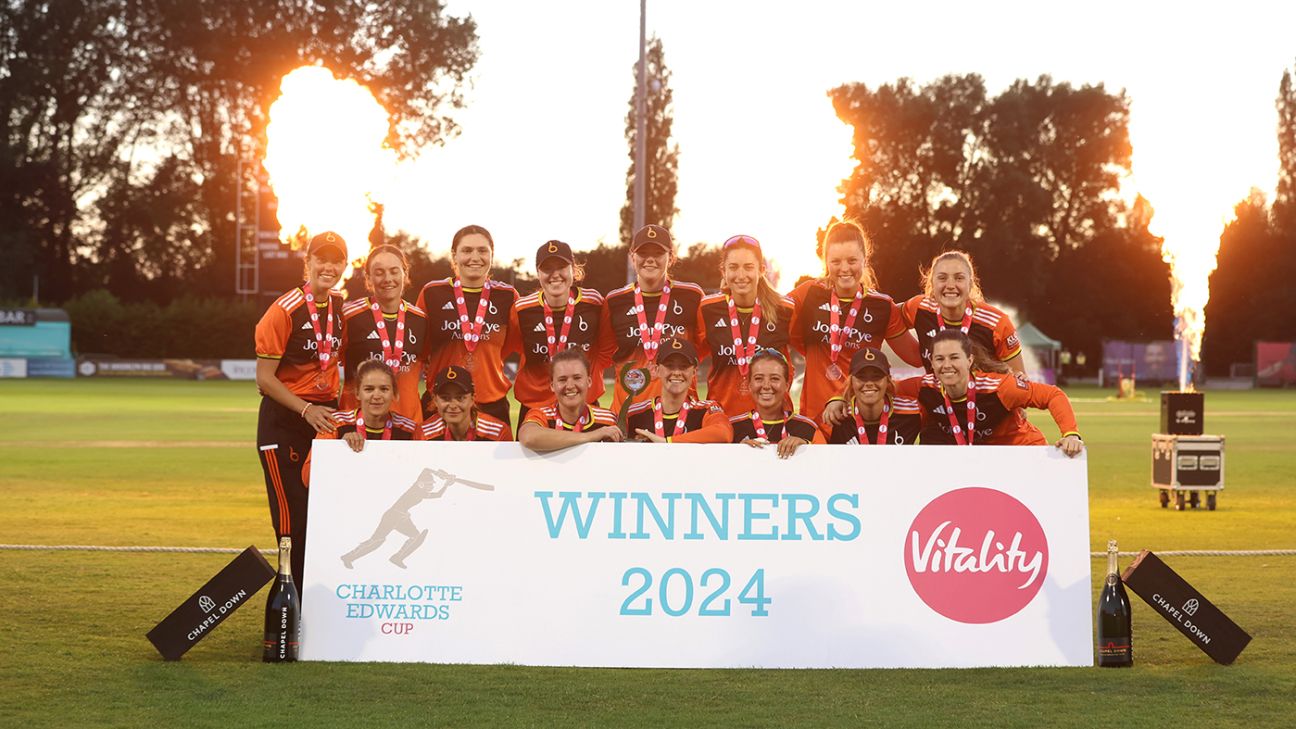Physical Address
304 North Cardinal St.
Dorchester Center, MA 02124
Physical Address
304 North Cardinal St.
Dorchester Center, MA 02124

England’s women cricketers have taken another step towards gender parity, with minimum starting salaries in domestic cricket set to be equalised across the men’s and women’s professional games from 2025.
The move, which will coincide with the first season of the new women’s county competition, will apply both at ‘Rookie’ level, which is being introduced into the women’s game for the first time, and at ‘Senior Pro’ level for players who have established themselves in first teams.
The announcement comes in the wake of the Independent Commission for Equity in Cricket (ICEC) report in June 2023, which called for a “fundamental overhaul” to the pay structure of women’s cricket in England and Wales.
The report found that the average England Women’s salary was 20.6% of their male equivalents (although the ECB considered that figure to be closer to 30%), and set targets for equalising pay at domestic level by 2029 and for internationals by 2030.
Although the ECB pushed back at the report’s timeframe for achieving full parity across the sport, their commitment to minimum salaries reflects the need to offer an equality of opportunity for young players considering cricket as a career choice. At the time of the report’s publication, the minimum salary for male first-class county players was in the region of £27,500.
This latest move follows last summer’s announcement that England’s women would receive equal match fees for international fixtures, which had been an immediate recommendation in the ICEC report.
“Equalising starting salaries across our men’s and women’s professional domestic game is another positive step forward for women’s cricket in England and Wales,” Beth Barrett-Wild, Director of Women’s Professional Game, said.
“The changes we’ve made to the structure of women’s domestic cricket across the last nine months have been about producing a sustainable and viable product that’s attractive off the pitch, as well as being quality on it. As part of this, it’s important that our players are remunerated appropriately, and that cricket is seen not just as a viable career option for women, but an enticing one.
“Increasingly, every decision we take is about making cricket as attractive a sport for young girls as it is for boys. We know we still have a lot of work to do in this space. But we are moving at pace, and the news today represents another significant building block in the journey to gender equity in the game.”
The ECB has also confirmed that the eight Tier 1 counties in the new women’s competition will have minimum squad sizes of 15 contracted players, with each of the first-class counties required to invest at least £500,000 on their player salary costs in 2025. A salary cap of £800,000 per year has also been agreed for those clubs.
PCA Director of Player Rights and Women’s Cricket, Emma Reid, said: “Working with the ECB and the professional game, we are really pleased to see equalised minimum salaries across the men’s and women’s domestic game from 2025.
“This is a big step towards reaching parity and a journey that the PCA is fully committed to achieving, but there is still further work to do. With the women’s teams under the umbrella of the First-Class Counties, the PCA will continue to lobby for parity across all areas of the professional game.”
The starting salaries and salary budget details have been approved by the ECB’s Professional Game Committee (PGC), which features representatives from FCCs, the Professional Cricketers’ Association (PCA) and the ECB.
The announcement came in advance of the ECB’s one-year update on its progress towards equity in cricket, in the wake of its initial response to the 137 recommendations and sub-recommendations outlined in the ICEC report.
The measures introduced have included the appointment of the Cricket Regulator as an independent, arm’s length disciplinary body, and an additional investment of £2 million in the ECB’s pathways programmes.
Richard Thompson, ECB Chair, said: “A year ago, we published our response to the ICEC report into racism, sexism and class-based discrimination in cricket.
“We made a commitment to wide-ranging action aimed at tackling discrimination and breaking down barriers for women and girls, people from lower socio-economic groups, and ethnically diverse communities, and today I’m pleased to report on the progress we have made in that time.
“But we know there is much more work to do and it’s only the start of the journey. We have a number of plans and structures in place to allow us to accelerate change through 2025 and 2026. And we recognise that in some areas lasting, meaningful change will take a long time.”
This article was updated at 1pm BST, September 25, 2024, following the publication of the ECB’s progress report